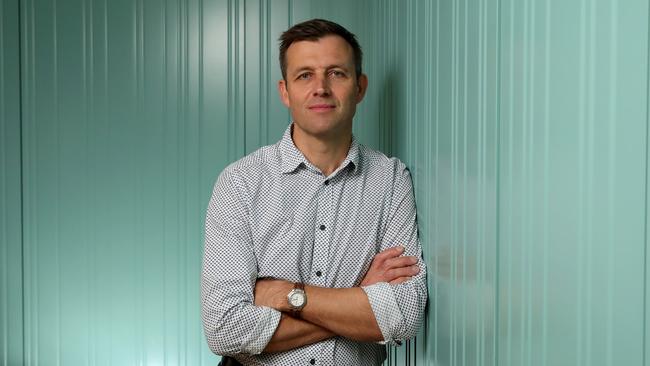
At issue is the value of unlisted assets primarily held by industry funds, especially in the wake of this year’s sharemarket sell-off.
Many industry funds – such as the No 1 ranked Hostplus – refuse to reveal details of their holdings in unlisted companies where valuations have been plunging.
A new research report from the Morningstar group says “disclosure requirements for unlisted infrastructure and private equity are appallingly weak”.
In an attempt to placate investors, David Neal, the CEO of industry fund umbrella group IFM, has defended the funds, suggesting that revealing details of unlisted assets would put the sector at a disadvantage.
Neal says the funds need their secrecy to get the best price when selling unlisted assets or doing deals: “Some have suggested that super funds should disclose these valuations but their commercial sensitivity is obvious,” says Neal.
Morningstar’s head of manager selection, Grant Kennaway, rejects the IFM defence out of hand, saying: “I don’t find these defensive arguments credible – there should be clear disclosure to all investors on unlisted assets.”
Most big funds only disclose unlisted assets under a generic asset class heading with virtually no information on specific holdings or the valuations of those holdings. In doing so, the funds keep on the right side of existing regulations.

The valuation of Canva, the unlisted graphics software empire, has become a flashpoint in the debate. Canva would have provided many funds with extraordinary paper gains in recent years. More recently, it should have triggered extraordinary valuation writedowns.
Ironically, Blackbird, the private equity fund most closely associated with Canva, has been the one that broke ranks and recently announced it had taken a 36 per cent writedown on its investment.
Following this high-profile writedown different industry superannuation funds announced different treatments on their Canva holding.
Kennaway says: “There are no disclosure demands here, we are depending on the goodwill of the funds to do the right thing. We can’t allow big funds to put bad information under the rug in a compulsory superannuation system.”
Pressure is also coming on the big funds from sustainable investors, with the CEO of the Responsible Investment Association Australasia, Simon O’Connor, suggesting local funds lag the standards of their offshore rivals.
“Sustainable investors should be able to see exactly what funds are doing with their money – when you don’t have transparency you have problems,” says O’Connor.
A recent RIAA report said only around a quarter of local funds come up to the disclosure standards required for sustainable investing.
Kennaway adds: “Australians looking to invest in sustainable investments have no regulator-enforced way to know if they are exposed to fossil fuels.”
The disparity is patently unfair: Sydney Airport shareholders should be fuming that super fund mangers who don’t have to reveal their prices bought an asset where the price was always on public display. It’s worth recording that one in five Sydney Airport shareholders were against the deal to remove the company from the market and park it in private equity.
Critics of industry fund secrecy also make the point that property trusts (known as A-REITs) are based on unlisted assets and their regular revelations on net tangible assets have not weakened the sector.
As the debate widens all funds will be hoping that a recent sharemarket bounce over July may soften the inevitable writedowns that must come across the board in unlisted assets. Private equity valuations traditionally lag public market valuations by a few months: On that basis some funds may choose to be more forthcoming in the months ahead.
Nevertheless, over the year to June, most asset classes offered negative returns. By implication it was the murky corner of private equity that pushed some funds into positive territory for the year: But that is the very category where we know the least about what the funds are doing.




The reputation of top performing super funds is under the gun after the disclosure standards across the sector were branded as “appalling”.